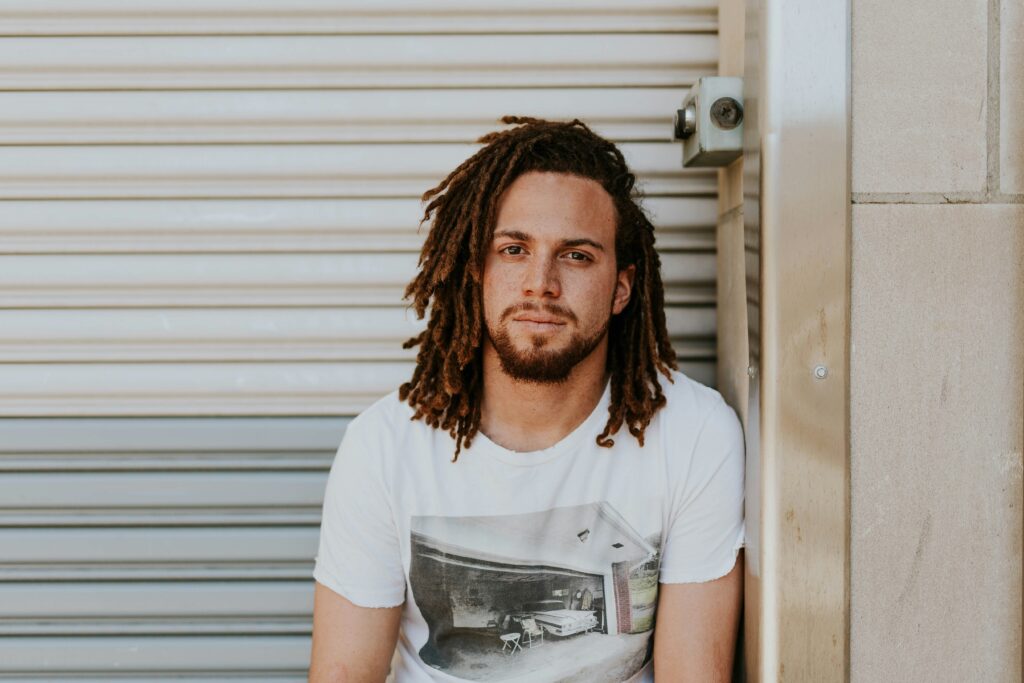Living with an Alcoholic: How to Support and Not Enable

Living with someone struggling with alcoholism can be stressful and chaotic. If you’re concerned that your loved one has a problem with their drinking, there are ways you can be there for them. First, it’s important to learn about the addiction. Then you can learn about effective ways to support them without enabling their behavior. What Is Alcohol Use Disorder? An estimated 17 million Americans aged 18 and older struggle with alcohol use disorder. Someone with alcohol use disorder has a problem controlling or stopping their drinking even after it negatively affects their health, relationships, or occupation. Signs that someone may be struggling with alcohol use disorder can include: Navigating how to discuss your concerns with the person with whom you live can be difficult. And it’s hard to know how best to support them while also making sure you’re paying attention to your own wants and needs. How to Talk About Your Concerns Having a conversation with someone about their drinking can be the first step in helping them tackle their addiction. These conversations are sometimes scary and uncomfortable, but it might save their life. Make sure to: Keep in mind that it may take more than one well-intentioned conversation. If you live with an alcoholic who has been struggling with addiction for a while, there may be many things in place that stop them from changing their behavior. Be Aware of Barriers to Change Making long-lasting changes is difficult for anyone. For those dealing with alcoholism, giving up alcohol may be one of the hardest decisions they’ll ever make. Often, alcohol is used as a coping mechanism to deal with feelings or experiences that are too difficult to face. When someone gives up alcohol, that’s just one of the changes they make. They may also have to change: The idea of making all these changes can be scary and daunting. So the person you live with might have a lot of excuses for not wanting or needing to stop drinking. Denial can be a large barrier to making changes and seeking treatment. If you live with an alcoholic, you might notice denial as the person: There are many things that can keep someone addicted in denial. Sometimes it’s fear of the unknown. Not knowing what sobriety will be like can keep someone from changing even though their alcohol use has caused them problems. They might want to avoid feeling shame or embarrassment when admitting they have a problem. Complicating matters, sometimes family and friends enable their behavior to continue. Avoid Enabling! When supporting your loved one, it is important to avoid enabling their alcohol abuse. Enabling someone with an addiction is when you prevent them from fully feeling the negative consequences of their addiction. This could look like: Avoiding enabling can be especially tricky when you live with an alcoholic. Sometimes ignoring the problem feels easier than facing it and potentially rocking the boat of your living situation. Because enabling behaviors can contribute to your loved one’s resistance to change, it is important to avoid them. Learning to set healthy boundaries and enforce them can be one of the most beneficial ways to support someone dealing with alcoholism. Set Healthy Boundaries Whether you’re married to them, friends with them, or simply living with an alcoholic, co-dependency can develop in the relationship. This is when you become so concerned with the addicted person’s problems that you neglect your own wants and needs. You can avoid co-dependency by setting boundaries. Boundaries are the rules and limits you set to protect your own well-being. Boundaries around alcohol use can include things like: These are just a few examples. Your boundaries should be unique to your living situation. Figure out what you’re comfortable with and state these clearly to your loved one. It is important to state these boundaries and make sure to enforce them when needed. Holding firm to your wants and needs may be difficult at first. That’s okay! If you’re not used to enforcing boundaries, it is normal for it to be uncomfortable in the beginning. It may also make your living situation feel awkward for a time. But look at it as an opportunity to support the person with whom you’re living while also taking care of yourself. How to Live Well with an Alcoholic Taking care of your own mental health and well-being is crucial when you live with an alcoholic. Supporting someone struggling with alcohol abuse can be emotionally and physically taxing. Practicing self-care could include: In particular, individual counseling may be helpful for you because you’ll learn more about setting healthy boundaries and coping strategies to use when you need them. And because you may have experienced negative effects of living with an alcoholic, participating in counseling allows you the space to process those experiences. You can also learn more about how to handle alcohol addiction and how to have production interactions with someone who’s addicted. You may want to seek out a support group for spouses, family, or friends who have been negatively affected by alcoholism. These are called Al-Anon groups, and they can be beneficial because being surrounded by others that have had similar experiences gives you an opportunity to build your support system and process your experiences. Sometimes it’s hard to focus on yourself when you live with someone who is struggling. Do your best to support them, and also pay attention to your own well-being. If you’re interested in learning more about treatment for alcohol addiction, contact us at Footprints to Recovery, where we have many treatment programs to help those struggling with substance abuse. References
Baclofen and Alcohol: Can Baclofen Be Used to Treat Alcohol Abuse?

Baclofen is a muscle relaxer that is sometimes used off-label to treat cravings in people with alcohol use disorders. Baclofen can be useful for treating some medical conditions and helpful for people recovering from alcohol abuse when they’re also closely monitored by a physician. Baclofen can be dangerous in certain situations. Medical Uses of Baclofen Baclofen is a muscle relaxer that’s approved by the FDA to treat muscle spasms associated with conditions including: Baclofen is sometimes prescribed off-label to: It’s well established that baclofen is effective at helping to alleviate pain, reduce muscle spasms, and allow for greater mobility. It works by depressing the central nervous system and relaxing your muscles. Baclofen is not the first line of defense for certain issues, such as lower back pain, because of its potential for abuse and side effects. It’s usually prescribed for short-term use to minimize the risk of addiction. Baclofen Side Effects Whether you’ll tolerate baclofen varies on an individual basis. Potential side effects include: Potential Dangers of Baclofen Studies have shown that baclofen can be useful in treating alcohol withdrawal, but there is much debate over how effective baclofen is for long-term treatment of alcohol use disorders. Some healthcare professionals argue that it can become addictive. Regardless of short- or long-term use, research shows that baclofen in combination with active, heavy drinking can be dangerous. 1. Mixing Alcohol and Baclofen Under the supervision of a physician and taken as prescribed, baclofen can be safely used to treat alcohol use disorders. But taking baclofen with alcohol can have serious side effects. Mixing baclofen and alcohol is a dangerous and sometimes deadly combination. Combining alcohol and baclofen can: It is imperative to seek help if you abuse both substances. Why Do People Mix Alcohol and Baclofen? Baclofen and alcohol are both depressants. Depressants lower the neurotransmission levels in your brain, which creates a mellow, relaxed feeling. Some people like the feeling of lowered inhibitions from alcohol together with muscle relaxation from baclofen. People may mix baclofen and alcohol because a doctor prescribed baclofen for alcohol withdrawal. Baclofen can ease alcohol withdrawal symptoms. This sometimes gives people the misconception that they can drink heavily and not have a hangover or overdose. Any combination of alcohol and baclofen can be dangerous. Combining the two can be even more critical when used to create a pleasurable effect. This can lead to addiction and consuming more substantial quantities of both substances. Side effects of mixing baclofen and alcohol include: A significant effect when you combine alcohol and baclofen is motor impairment and lack of coordination. Taking alcohol and baclofen together can make it difficult to walk or even stand up. This can lead to falls and serious injuries. Impairment of motor skills can make it dangerous to operate a vehicle or machinery. When used alone, both alcohol and baclofen cause adverse effects on reaction time and decision-making. Mixing the two makes these problems worse. Getting behind the wheel can be hazardous and even deadly. The intense sedation effects of combining the two puts you at higher risk for overdose. Combining the two substances can depress your breathing and cause: If taken in high quantities, baclofen can lead to overdose. Baclofen overdose symptoms include: 2. Baclofen Addiction Muscle relaxers can be addictive. If you take them in large quantities, you may develop a tolerance to their effects and therefore use more. You can also become psychologically addicted to the feeling from the drug’s effects and take more to achieve that feeling. Abusing baclofen and abusing alcohol puts you at a higher risk for addiction. Alcohol alone affects your ability to think clearly. The inability to make smart choices when intoxicated can make it easier to use another drug or consume more than usual. These behaviors increase the risk of addiction. A randomized, controlled study found that baclofen’s efficacy in reducing alcohol consumption and helping people remain alcohol abstinent is typically 30 to 90 mg a day for women and 90 mg a day for men. Using more than these baclofen doses as prescribed by your doctor is problematic. People who abuse alcohol and baclofen may experience withdrawal symptoms when they stop these substances, which is another sign of addiction. Alcohol and baclofen withdrawal symptoms may include: You should never attempt to detox from baclofen and alcohol on your own. Alcohol withdrawal symptoms can become severe and even lead to death. Undergoing medical detox with the help of physicians and detox specialists is the safest way to eliminate these substances from your body. How Does Baclofen Help Alcohol Addiction? Baclofen can have benefits for people withdrawing from alcohol. It can reduce cravings to drink, which can be especially strong during this period. Some research shows baclofen is significantly better than other pharmaceuticals at reducing alcohol cravings. There are some healthcare providers that may use baclofen as a long-term treatment. At Footprints to Recovery, we believe the risks of long-term use outweigh the benefits. The potential for baclofen abuse is too significant. We have found that baclofen can be helpful during alcohol withdrawal as clinically and medically appropriate. It can provide comfort during detox, so you are more likely to stay in treatment. Baclofen can help ease the anxiety that comes with alcohol addiction and withdrawal. Severe anxiety makes it more challenging to stay sober. Alcohol has been the go-to substance for people addicted to alcohol, and without it, anxiety can feel overwhelming. Treating Alcohol and Baclofen Abuse If used as prescribed, most people aren’t at risk of becoming addicted to baclofen. That is not the case for everyone. For example, maybe you were prescribed baclofen to help with muscle spasticity but hid the fact that you drink daily. Perhaps you were prescribed baclofen to help you stop drinking, but instead you are abusing both. It can be complicated to identify baclofen abuse. It’s used for other issues, so it can be difficult to know if the signs of abuse are from baclofen or other substances. There are a
Avoid Becoming a New Year’s Eve DUI Statistic

Every year, we wake up on New Year’s Day to terrible stories of loss and devastation caused by drinking and driving. Sadly, the stories we hear only make up a small percentage of how many lives are altered forever or lost to driving while under the influence during this festive time of year. According to the U.S. Department of Transportation, an average of 300 people died in the week between Christmas and New Year’s Day every year between 2012 and 2016. In the month of December as a whole, the average number of lives lost due to drunk driving averaged just under 4,000 — about 28 percent of all lives lost due to car accidents during December in each of those years. It’s a preventable tragedy, but avoiding becoming a DUI statistic on New Year’s Eve or anytime during the holidays is not as simple as choosing not to get behind the wheel after drinking. There are a number of different choices you can make that will help you and the people you care about to stay safe this year and stick to your resolve to avoid drinking and driving. Here are 10 ways you can avoid becoming a statistic on New Year’s Eve: 1. Utilize free ride share services and public transportation. Cities, large and small, try to circumvent the risks of DUI by subsidizing ride share services, cabs, and public transportation. All you have to do is download the app, know the code, save the number in your phone, or do whatever it is you need to do in advance to make sure you have a safe and sober ride home on New Year’s Eve. Do a quick Google search for your area, post the question on local police department Facebook pages, and make sure you get a few different options so you have a backup plan and a backup for your backup. Give yourself as many safeguards as possible to ensure that it is easy for you to make the right decision later. 2. Start your New Year’s Eve vigilance now. Though buses offer free rides and many car share services provide discounted rates on New Year’s Eve itself, these same services are not offered throughout the holiday season despite the increased rate of parties and gatherings that involve heavy use of alcohol and other substances. In other words, the risk of drunk driving accidents is high all month, yet the focus is mostly on New Year’s Eve specifically, putting many at risk during the rest of the month. It is common for people to say to themselves, “I’ll have just one,” or “I’m fine to drink now since I won’t be driving for a couple hours,” when they go to an office Christmas party or a small community event. Unfortunately, there are a number of unexpected factors that can play a role in throwing those good intentions out the window. For example: You might want to leave earlier than you originally thought if the people you are with want to go, an emergency arises, or the party dies out early. Other substances may be floating around at the party, and if you use them while drinking, it can amplify the effects of alcohol. Holiday parties can be socially awkward as they are often the only time in a year that some groups get together socially. For those who drink to manage social anxiety, one drink can often quickly lead to another despite good intentions. There is often a vibe that it is okay to overindulge and “let loose” just because it is the holiday season. If your intent is to stay safe on New Year’s Eve, get yourself in the healthy mindset now and carry it with you throughout the holiday season. For every event you attend this year, follow these same principles of choosing safety first. 3. Don’t drink or use other substances. Sounds like a no-brainer, right? If you have struggled with drinking and driving in the past, then it stands to reason that the best way to avoid drinking and driving is to avoid drinking entirely. Unfortunately, if you are living with an alcohol use disorder, this is a lot easier said than done. In fact, it is likely not the first time that you’ve sworn off alcohol, promised yourself or your loved one that you would moderate your drinking, or otherwise attempted to mitigate the harm caused by alcohol use. If you believe you are unable to manage your use of alcohol and stay safe this holiday season, it may be time to consider your options in alcohol treatment. Alcohol use disorders occur on a spectrum, from the person who binge drinks regularly, drinking more than two to three drinks in an two-hour period, to the person who drinks all day every day. There is no one set of circumstances that defines alcohol abuse, but for every unique individual, there are services that right for you and speak to where you are with alcohol today. 4. Stick close to a sober friend. If you can’t or don’t want to stay sober, have someone with you who you know will avoid any substance use. This person should be willing to not only avoid alcohol and potentially drive you where you need to go but also to intercede should you try to get behind the wheel or leave with someone who is intoxicated. 5. Set reminders on your phone. If you want help remembering to stop drinking by a certain point in the night, to drink no more than one drink every 60 to 90 minutes, or to head home at a definitive time, set reminders on your phone or watch to help you stick to your goals. 6. Choose celebrations that are close to home. You can remove the whole dilemma about drinking and driving by choosing to stick close to home or by hosting the party yourself. Be careful, however, if you walk home. Walking home while under the influence can
Dry January & Remaining Sober Beyond

For those who are unfamiliar, Dry January is a public health campaign that urges participants to abstain from alcohol for the entire month of January. The origins of Dry January stem back to as early as 1942 in Finland but has recently gained traction and attention in the United States and in the United Kingdom. For some, Dry January is part of one’s New Year’s Resolution to drink less, while others claim it’s a way to detox from the excessive drinking done over the holidays. Regardless of one’s reasoning behind remaining sober for the entire month of January, it is unarguable that many benefits are reaped through the process of participating in Dry January. Understanding and experiencing the benefits gained from engaging in Dry January, it is presumed that one can transition into a sober lifestyle with ease during the following months. Let’s first examine Four Key Benefits derived from abstaining from alcohol in Dry January (and beyond): 1. More Money: It goes without question that cutting back on your alcohol intake will save you some cash. According to the Bureau of Labor Statistics, Americans spend about $565 a year on alcohol… that’s $22,600 over a 40-year period! Avoiding alcohol for just one month will save you a significant amount of money that can be spent elsewhere. 2. No Hangovers: Probably the most obvious benefit of partaking in Dry January and maintaining sobriety afterwards is that giving up booze will spare yourself from those unwanted hangovers. Instead of being immobile and stationary in your bed Saturday & Sunday morning, you can actually seize and enjoy the day! 3. Healthier Skin: Piper, CEO for Alcohol Concern stated that people who partake in Dry January may already be experiencing clearer and less dry skin. Those who continue to maintain sobriety after just four weeks, will typically notice their skin becoming less and less puffy. “If you stop drinking and keep yourself hydrated, your skin will likely thank you for it,” Dr. Luke James, medical director for Health Clinics at Bupa UK stated. On top of clearer skin, those who avoid alcohol will usually experience weight loss! 4. Better Mood: After a drink, we may experience a sense of relief. Sometimes we may feel perky and other times a drink can simply relieve us of stress and anxiety. Over time though, alcohol consumption may become a main coping strategy. Ashley Jones, ARPN-CNP, a certified family nurse practitioner at The Ohio State University Wexner Medical Center says, “alcohol tends to make these symptoms (anxiety, depression, etc.) worse, so you may find that your mood is actually more stable when not consuming alcohol.” Simply put, when you are not under the influence, it is easier to recognize negative feelings. When these particular feelings are apparent, perhaps therapy, talking to a doctor or exercise could help relieve and suppress these emotions. Maintaining sobriety beyond Dry January may seem like a daunting task, but it is imperative to grasp the concept that long-term sobriety leads to bountiful health, financial and social benefits. When a clear understanding of the benefits to sobriety is gained through one partaking in Dry January, it is easier for that individual to continue the journey to full-time sobriety. If a struggle ensues to remain sober after the month of January, here are Four Tips to Maintain Sobriety: 1. Write Down all the reasons why you’d like to give up drinking and display it for yourself to see on a daily basis. A constant reminder of the negative consequences that arise when under the influence and positive consequences of sobriety, can help you avoid alcohol altogether. 2. Determine the Aspirations you wish to achieve now that you’re no longer spending time and energy drinking. Perhaps spending more time with family or rebuilding relationships? Achieving better physical health by going to the gym? Engaging in an enjoyable hobby early Saturday mornings?! Starting to learn the guitar you’ve always wanted to play?! The possibilities are endless. 3. Avoid Alcohol. Remove all of the alcohol from your home to deter you from falling victim to temptation. It’s a lot easier to maintain sobriety when alcohol isn’t in arm’s reach. Furthermore, until you feel you have a strong hold on triggers try to avoid situations where alcohol is present. It’s important when doing this you replace those situations with positive ones so as not to isolate yourself. You Might Be Interested In Celebrities in recovery Fun gifts for avoiding financial stress during the holidays Spring cleaning ideas for the soul 4. Find Support! You’d be surprised how many friends, loved ones, co-workers and even strangers can help be supportive when it comes to you trying to maintain sobriety. Perhaps, support could come from a family member refusing to drink around you. Other times, support comes in the form of a friend spending quality time with you without alcohol being present. Reach out for guidance, support and help. It may seem easier said than done but get in the habit of asking for support from the people you are closest with. They’ll usually understand and be happy to be of assistance. There are many resources available to help those struggling with alcohol dependency. If abstaining from alcohol is seemingly too difficult, please reach out for help. Author: Michael Kelly, Clinical Technician
Benefits of Quitting Alcohol

7 Main Benefits of Quitting Alcohol Whether you’re occasionally overdoing it or you frequently abuse alcohol, the benefits of quitting alcohol far outweigh whatever you think you’re gaining from it. Most people in recovery will tell you their lives are now abundantly better than when they were drinking or using drugs. They’re clearer, more present, healthier, happier people, and they’re enjoying life more. The alcohol guidelines for American adults assert that if or when you’re drinking, you should drink no more than one drink if you’re a woman and two drinks if you’re a man. If you’re drinking more than that, it’s time to take a closer look at your drinking patterns and consider changing them or stopping altogether. Not drinking may sound like no fun to people teetering on the edge of alcoholism. It may sound downright impossible for those who have a substance use disorder. But quitting drinking is possible, and the benefits to your body when you stop drinking are vast. 1. Benefit of Quitting Alcohol – Improved Mood Some people drink alcohol because they feel like it makes them less stressed, happier, and less inhibited in conversations and behaviors. While you may feel these desirable effects of alcohol temporarily when you drink, they quickly wear off. Plus, they can contribute to the same things you\’re trying to drink away in the long run, like: Alcohol significantly impacts your brain. It works on your brain’s reward system and the chemicals that are responsible for: Even after drinking moderately, it takes your brain a day or more to rebalance those chemicals. During that time, you may feel a little more tired, cranky, or have a lower energy level or mood than normal. You may also experience changes in sleep quality. If you drink excessive amounts of alcohol, these effects are even greater. In addition to a hangover, you might feel: If you’re a heavy alcohol drinker, over time your brain’s reward center starts relying on alcohol to produce even normal levels of certain feel-good brain chemicals. These chemicals get depleted eventually. When this happens, you can experience ongoing depression, anxiety, and other mental health disorders. A benefit of quitting drinking is that your brain will heal itself without alcohol. Eventually, your brain chemicals will rebalance. Your central nervous system will go back to optimal functioning without alcohol, and you won’t experience the highs and lows that come with drinking regularly. 2. Benefit of Quitting Alcohol – Longer Life Drinking alcohol comes with several health risks that can shorten your life. One of the most important benefits of quitting drinking is a healthier body. Drinking alcohol strains most of your vital organs and increases your risk of cancer and cardiovascular events. Heavy drinkers are at risk for several health conditions, such as: All of this sounds painful, but, more importantly, it’s dangerous. Over time, drinking can cause organs such as the liver, kidneys, and heart to shut down. By quitting drinking, you’re stopping the damage that excessive drinking does to your body. Once you stop drinking, your liver gets a much-needed rest from processing alcohol, which is poison to it. 3. Benefit of Quitting Alcohol – More Smarts Alcohol abuse can: Giving up alcohol helps your memory stay sharp and your mind become clearer. Alcohol depletes essential vitamins, such as vitamins B6 and A, which are essential for brain health and other important functions. When you stop drinking alcohol, you also stop depleting these vitamins. Most people who drink excessively can note times their memory has “blacked out.” This happens because alcohol impairs the parts of the brain that are responsible for forming memories. Over time your brain can repair some of the damage done by alcohol addiction or drug addiction. The sooner you quit, the less long-term damage you do. 4. Benefit of Quitting Alcohol – Higher Quality of Sleep When you quit drinking alcohol, you’ll enjoy more restorative sleep. Having more than a couple drinks can dramatically disturb your sleep cycle by causing negative effects like: When you quit alcohol, these issues should clear up. Because you’re getting more restful sleep, you may feel more energized, mentally sharp, and motivated. Plus, sleep is essential for physical health. Getting enough sleep supports heart and brain health, so it can improve a number of functions. 5. Benefit of Quitting Alcohol – Improved Appearance Alcohol abuse and alcoholism affects your appearance. When you quit drinking, you will not only feel better, but you’ll look better. Some benefits of quitting drinking include: Better Skin When people quit drinking, improved skin is one of the first things many notice. Alcohol can wreak havoc on your skin because it’s a diuretic, which means it dehydrates your body. Your skin needs water to look and feel its best. Alcohol fuels wrinkles, acne, bags under your eyes, and ashy skin shades. Alcohol can also make your pores larger. This can lead to inflamed skin, whiteheads and blackheads. When you quit drinking, you can rehydrate your body, and it shows in the appearance of your skin. Your body is also better able to absorb nutrients that promote good skin. Healthier Weight Quitting alcohol can help you lose weight. Excessive alcohol intake has a proven link with weight gain. Most alcoholic beverages have a high calorie count because of ingredients such as processed sugars. Even alcoholic beverages without added sugar can still cause weight gain. Alcoholic beverages are often referred to as “empty calories.” That’s because alcohol itself is high in calories, and it promotes hunger. Some people engage in binge eating when intoxicated. Typical binge foods aren’t usually healthy foods, so avoiding binges is another benefit to your overall health. Consuming alcohol before or after meals can cause you to eat more calories. Over time, excessive alcohol consumption, as well as overeating when drinking alcohol can lead to gaining a significant amount of weight. People with alcohol use disorders may also have a lifestyle that promotes weight gain, like not exercising regularly and eating meals





